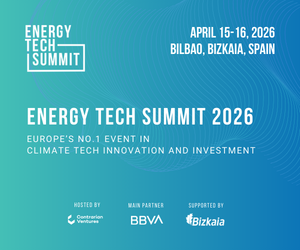Search - Search on Articles, Blogs & Tags
Total Results : 815
South Africa to embrace private power generation
- 2020-01-15 06:01:10.447171
- David Flin
South Africa’s President Cyril Ramaphosa has announced that the country will encourage efforts by businesses to generate their own power.
Renewables in 2020 and beyond
- 2020-01-02 12:59:24
- Junior Isles
Paul Sheffield, Managing Director, Haven Power, Drax Customers, explores how the next ten years will turn up the heat for using renewable energy.
India on target to pass 100GW renewable energy in 2020
- 2019-12-27 06:34:19.497925
- David Flin
India is making rapid progress towards its goal of achieving 175GW of renewable capacity by 2022, and is on course to pass 100GW during 2020.
UK renewables exceed gas-fired power generation for first time
- 2019-12-20 05:01:14.621848
- David Flin
Renewable electricity generation in the UK between July and September 2019 has outstripped the share coming from gas for the first time, according to the Government’s latest energy trends data.
Irish Government launches new scheme to help community groups generate electricity
- 2019-12-02 04:37:49.641136
- David Flin
The Irish Government has announced the first renewable electricity support scheme (RESS) to enable community groups get into power generation.
Get C-level Executives to Understand It’s ‘Crunch Time’ for Sustainability Initiatives
- 2019-11-15 22:15:23.823042
- Junior Isles
By Paul Marushka, CEO of Sphera
When it comes to getting a buy-in for a sustainability project—or any other plan that could be perceived as low priority—you cannot pull any crunches.
Number crunches, that is.
Australian Government announces $1 billion boost for renewable energy green bank
- 2019-10-30 05:00:14.336943
- David Flin
The Australian Government has announced that it is putting an additional $1 billion into its publicly-funded Clean Energy Finance Corporation (CEFC), the so-called “green bank” to invest in energy projects.
UK renewables generate more than fossil fuels for a quarter for first time
- 2019-10-14 05:07:52.801454
- David Flin
The climate analysts Carbon Brief has announced that the third quarter of 2019 was the first quarter in which renewables generated more electricity than fossil fuels in the UK.
Merchant renewables: a viable investment or a bubble fit to burst?
- 2019-10-03 10:40:30
- Junior Isles
Like many other nations, Spain has incentives to encourage investment in renewable energy production. After several years with a ‘moratorium’ on incentives and no new build, the need for incentives has disappeared almost overnight as renewable energy sources have reduced costs and have now achieved “grid parity”, meaning that they can be developed without government subsidies. Whilst this has encouraged an increase in renewable energy projects, it could be harmful to profits and have serious economic risks for investors. So what are the potential risks of taking a long-lasting grid parity in Spain for granted, how can these problems be mitigated and why is it relevant to us all?
By Javier Revuelta, ÅF Pöyry Management Consulting
Regulatory support can power Latin America’s utilities
- 2019-09-26 22:00:17
- Junior Isles
Although policy uncertainty is spreading across Latin America, strong regulatory frameworks are keeping the region’s utilities on the right track.
By Julyana Yokota, Senior Director and Sector Lead, Infrastructure and Utilities, Latin America, S&P Global Ratings.












